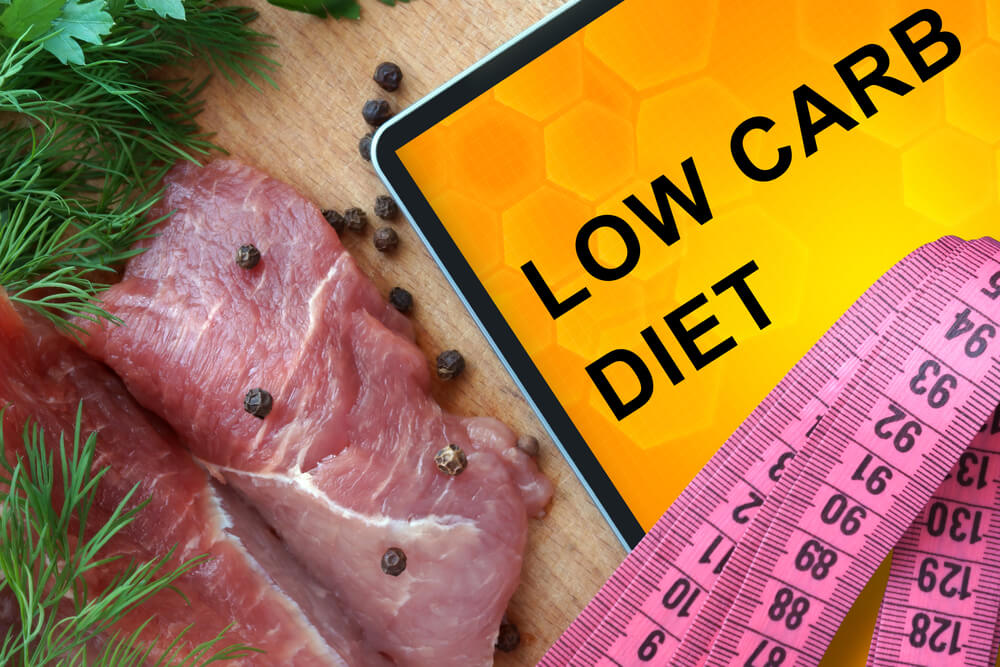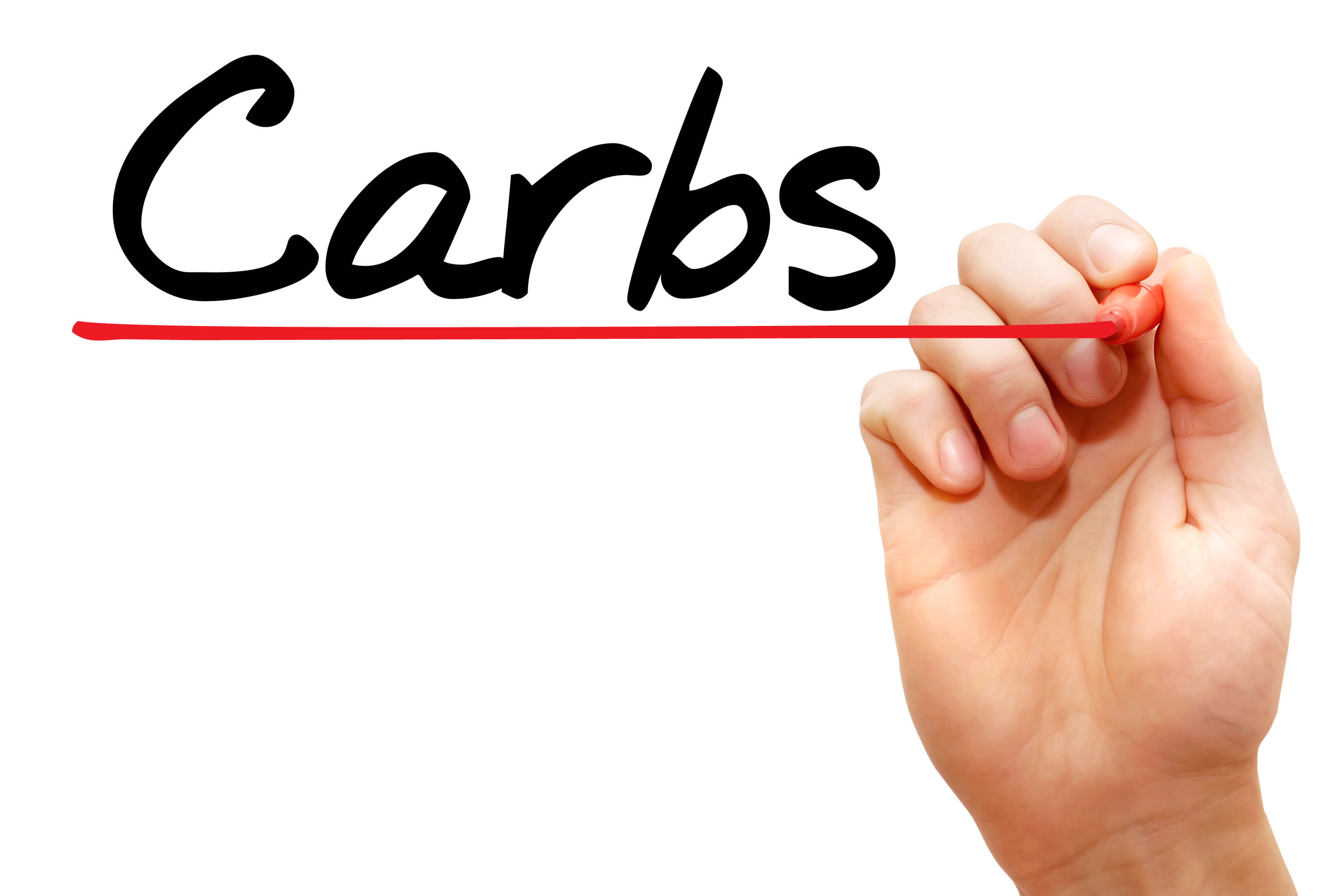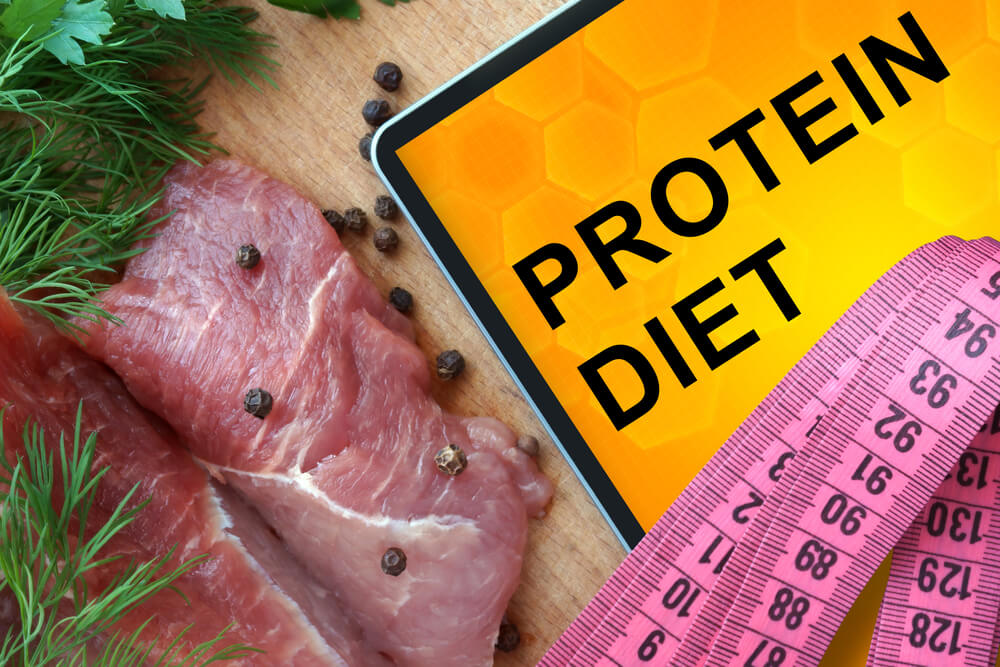
Wondering how that skinny girl at the gym lost all that weight recently? Or maybe that guy with the ripped six pack? Today we’ll show you how to get there.
Ask her and she’ll probably say it’s a low carb cutting diet. Curious as to how your mom’s friend (who is a little older) was finally able to lose some weight? She’ll probably say a low carb diet. And how the heck did your friend who couldn’t lose those last few pregnancy pounds actually lose those pounds? A low carbohydrate diet, no doubt.
So if low carb eating is the way, what’s the best way to put this to work for YOUR body?
Low Carb Diets All The Rage or Passing Fad?
Low carb diet and no carb diets are definitely popular these days. However, at Gym Junkies, we know that popularity does not always make a trend healthy, effective or sustainable.
Everyone seems to be all about these fad diets. This trend reared its head somewhere in the late 90’s and early 2000’s, right after Atkins started becoming super popular. So now, of course many people believe that low carb diets are the best way to lose weight. While many argue that Atkins is the best low carb diet, we’re raising the questions:
Can a low carb diet work?
Which low carb eating method is truly best?
Low carb eating looks a little like this – the health-conscious eater gets a hamburger without the bun. This might sound like sacrilege to some people, but it happens. In fact, some of these eaters go as far as to turn down the bread basket at restaurants. And don’t even think about putting a baked potato on their plate. Carbs are pretty much the devil because they’re on a low carb diet.
Odds are, within the last handful of years, you’ve probably heard that carbs….
- Greatly increase your blood sugar and insulin, which in turn, really layers on the body fat
- Are the cause of inflammation, especially sugars and grains
- Are not a critical part of your diet, like protein and fat should be.
Those are the general rules that no carb diets drill into the heads of participants. But those are pretty basic statements to make about a not-so-basic type of food.
What is a low carb diet, you ask? Low carb is when the participants lower their daily carb intake dramatically. Now, a no carbs diet literally means just that – the person isn’t going to eat any carbs.
Are All Low Carb Diets Created Equal?
It turns out that cutting ALL carbs might not be the answer. To throw all carbs into the same category is a bit reckless. We also tend to think that completely restricting carbs will lead you to a crash. You might just end up diving head first into a bowl of pasta.
While you’ll never hear me recommend an all carb diet, having no carbs just seems inhumane and cruel. Even following a low carb diet can be painful!
After all, carbs can increase insulin levels, right? Right. So does this increased level after meals tend to lead to fat gain?
No. No it doesn’t.
Because insulin is a satiety hormone, meaning it makes you feel super full, that whole concept begins to unravel.
Did you know:
Not all carbs cause the same level of inflammation. The main enemies we’re dealing with are processed corn syrup, refined sugars and white starches. Whole grains aren’t really the culprits for this negative reaction.
So can a low carb diet seriously make people lose weight? Sure, of course. Absolutely. But is it because the diet in low in carbs? We’re going to find out.

The Problem with Low Carb Diet Plans
When you cut carbs out of your diet, it can definitely help you. Obviously Atkins’ popularity is evidence of that.
But here’s the problem– when we start carb reduction, it can cost you in more ways than one.
It turns out low carb diet might be another word for low-performance diet. Our bodies require a certain level of carbs in order to function at their absolute best over long periods of time. So yeah, cutting carbs short term in order to lose weight fast works. But if you keep that up for a long period of time, the results can be damaging – and you might have a hard time coming back.
Weight lifters, this especially applies to you.
When you aren’t really moving around and doing much, your need for carbs is low. So you can technically function OK without getting a ton of carbs. If you’re trying to increase strength and muscle size without feeding your muscles with carbs, good luck.
But if you exercise often (and you should), then you’re going to need to up your carb intake. If you don’t, you could suffer from:
- Suppressed immune function,
- Muscle catabolism,
- A decrease in thyroid output and testosterone
- Mood fluctuation and crankiness.
Basically, your metabolism is slowing down, so your stress hormones shoot up and the hormones that build muscles go down. AKA low carb diet = low muscle performance.
And the icing on the carb-cake? It’s likely you won’t lose a ton of weight if you plan to do this long term.
Low Carb Diet Complications: Who Is at Risk?
This can affect just about everyone. But if you suffer from thyroid syndrome, where you constantly feel cold and tired, this could be a big deal for you. Lower T3 hormone levels are generally a part of this syndrome.
This is important:
T3 is extremely sensitive to your calorie and carb intake.
So when your calories and carbs are very low, these T3 levels drop. Of course, the simple solution is getting more carbs and calories.
Why is T3 important?
Because it helps your body function properly by aiding in blood glucose management.
There have been plenty of studies and research showing evidence that this is true. In fact, one study showed that cutting back on carbs dramatically decreases T3 levels as quickly as starvation can.
Now that’s some food for thought.
A group of French researchers decided to study some diets that were equal in calories. Two of these diets had 250 grams of carbs, which is considered to be the normal amount. The other group was low carb, with a rate of 71 grams of carbs, and the last group had a higher-carb intake at 533 grams.
- 250g – Normal
- 71g – Low
- 533g – High
Their findings:
T3 levels were all equal for the normal and higher carb diets. But, on the low carb diets, the levels were lower.
Low Carb Diets and Weight Lifting
So when you don’t get enough carbs, especially when you’re working out, your T3 levels go down. Next, reserve T3 increases, which then blocks even more T3 and then you feel terrible. Awful. Like crap. And that definitely reflects back in your workout performance.
When you’re active, you need a decent amount of carb intake in order for your thyroid to be healthy and keep you energized.
If you don’t get enough carbs, and you do exercise often, your testosterone levels will fall and cortisol levels rise. This is definitely a recipe for absolute disaster – you’ll start losing muscle and begin to gain fat.
A Life Sciences study focused on men who ate higher levels of carbs vs. the lower carb diet for 10 days. The higher carb-eaters had higher levels of testosterone and lower levels of cortisol.
That’s big news for weight lifters.
Fast-forward a few years and they did another study – but this time, they added men and women who exercised often. After only 3 days, they put the participants to the test – they had them complete a cycling test.
And guess what? Only 2 out of 6 could finish it. The 2 that finished were on the high-carb diet.
Coincidence? Unlikely. Next they had everyone follow the higher-carb diet for 3 days. Then, all 6 participants were able to complete the test.
So what did we learn?
- Not getting enough carbs cuts back on testosterone (the opposite of helpful for anyone trying to build muscle
- Cutting back on carbs increased cortisol (more stress, worse performance)
- And not getting enough carbs definitely hinders you performance.
We also know that not eating enough carbs can majorly mess with hormones, especially women, which means women may be more sensitive to lower carb levels. So when women don’t get enough calories or carbs, as with many low carb diet plans, they can sometimes develop hypothalamic amenorrhea.
Your body’s initial response to this is to stop the menstrual cycle, as the hormones are distressed. This is similar to the reaction of starvation and stress. Your entire system feels this and it can affect everything from your mood to your libido to your metabolism. No one wants any of those things, men and women included!
Is a Low Carb Diet an Imbalanced Approach?
A lot of people start eating low-carb because they want to get healthier. But, because low-carb diets can seriously disturb the production of hormones, these people (especially women) may deal with:
- Bone density loss
- More body fat, especially around the middle area
- A drop in fertility
- Stopped or irregular periods
- Mental health issues like anxiety and depression
- Chronic tiredness and disturbed sleep.
So all in all, isn’t this what they were all trying to avoid in the very first place?
We know that when you hear the word protein, you’re probably thinking about the awesome muscle building properties. Bet you didn’t know that if you lower your calories, and maintain your protein intake, you can still negatively impact your muscle mass.
So go ahead – chug those protein shakes. But if you don’t balance it out with the right amount of carbs, it won’t make any difference. Low carb diet might spell low muscle gain for most people.
Many studies show that a low carb diet definitely increased muscle breakdown. How could this happen? Because extremely low carbs resulted in lower insulin levels. And because insulin is needed to build muscle, it wont matter how much protein you’ve shoving down your throat.
You NEED carbs to build muscle. Simple as that.
We know what you’re thinking – low carb diet is the best choice for fat loss! No, it’s not. It’s good for immediate, right-this-second weight loss.

Low Carb Diet vs High Protein Diet
Our vote goes to a high protein diet, instead of a low carb diet. Why? Three major reasons:
- Protein makes people feel fuller for longer periods of time
- Protein can help you retain lean mass in your body
- Protein has a much higher thermic effect, meaning that your body literally has to build up the momentum to digest it.
We can balance the scales a little with a new study, too, where the protein was matched. The study had subjects eat a relatively medium carb diet, with 40% of calories coming from carbs.
The results:
Not only did people report much better moods, but they also lost the same amount of weight those on the low carb diet lost.
So these people felt better, lost the same amount of web as low-carb dieters, and improved their own insulin sensitive. The one thing low-carb dieters have that this study didn’t? They didn’t have the negative results in blood work and inflammation like the low carb diet guys did.
Don’t go jumping the gun.
We aren’t saying you should run to the store and buy every single carb they have. A mere 2.5% of the world’s population can really do well eating an insane amount of carbs. When we say insane, we mean more than 70% of their total daily calories. But on the flipside of that fact, not a lot of people can truly do well with a low carb diet either.
Conclusion
So what the heck should you do? Keep in mind that fad diets are just that – fads. So when one diet method says they have the answer, the cure, the all-doing, it might not be the right solution for you. We’re quick to jump on the boat and say this is the diet for us.
Remember, with fitness fads, popularity doesn’t always mean effectiveness, healthiness or sustainability.
For most people, having a super strict diet with major restrictions just isn’t the right choice for them. This can be really hard to stick to. Most people function their absolute best with they have a healthy balance of lean proteins, healthy fats, and some carbs. Keep portion controls in mind whenever you’re eating anything, as this is one pitfall many people fall into. Low carb diet or not, oversized portions will kill your progress.
What’s the best way to decide on the diet for you? Trial and error! Have some fun and try various techniques. Learn to be flexible so you can roll with the punches and find your answer. If you don’t like pasta, it’s not a problem. Try rice instead. Or, if you’re trying to stay away from eggs, go for chicken as a lean protein.
Finally, your carbs intake should depend on four things:
- Your goals in terms of weight loss and muscle gain
- Your genetics for your body type and any medical conditions you might have
- Where you carbs are coming from
- Your level of activity and how intense you’re going to get
Lastly, try not to overanalyze. We understand your fitness is important to you – but keep in mind the way you feel is just as important as how you look! If a low carb diet makes you feel crappy and perform less than your best, don’t tie yourself to this method for fat loss.
If you’re trying to cut some quick pounds, then try low-carb dieting for a brief time. If you’re interested in building muscle and improving your performance, the carbs are here to stay.
-Terry Asher
Terry
Latest posts by Terry (see all)
- How Important Are Net Carbs For Building Huge Muscle? - Apr 28, 2017
- The Matt Damon Workout Explained - Apr 27, 2017
- Watercress – Benefits And The Best Way To Consume It - Apr 26, 2017














AWESOME
Thanks for stopping by Dane!
-Terry